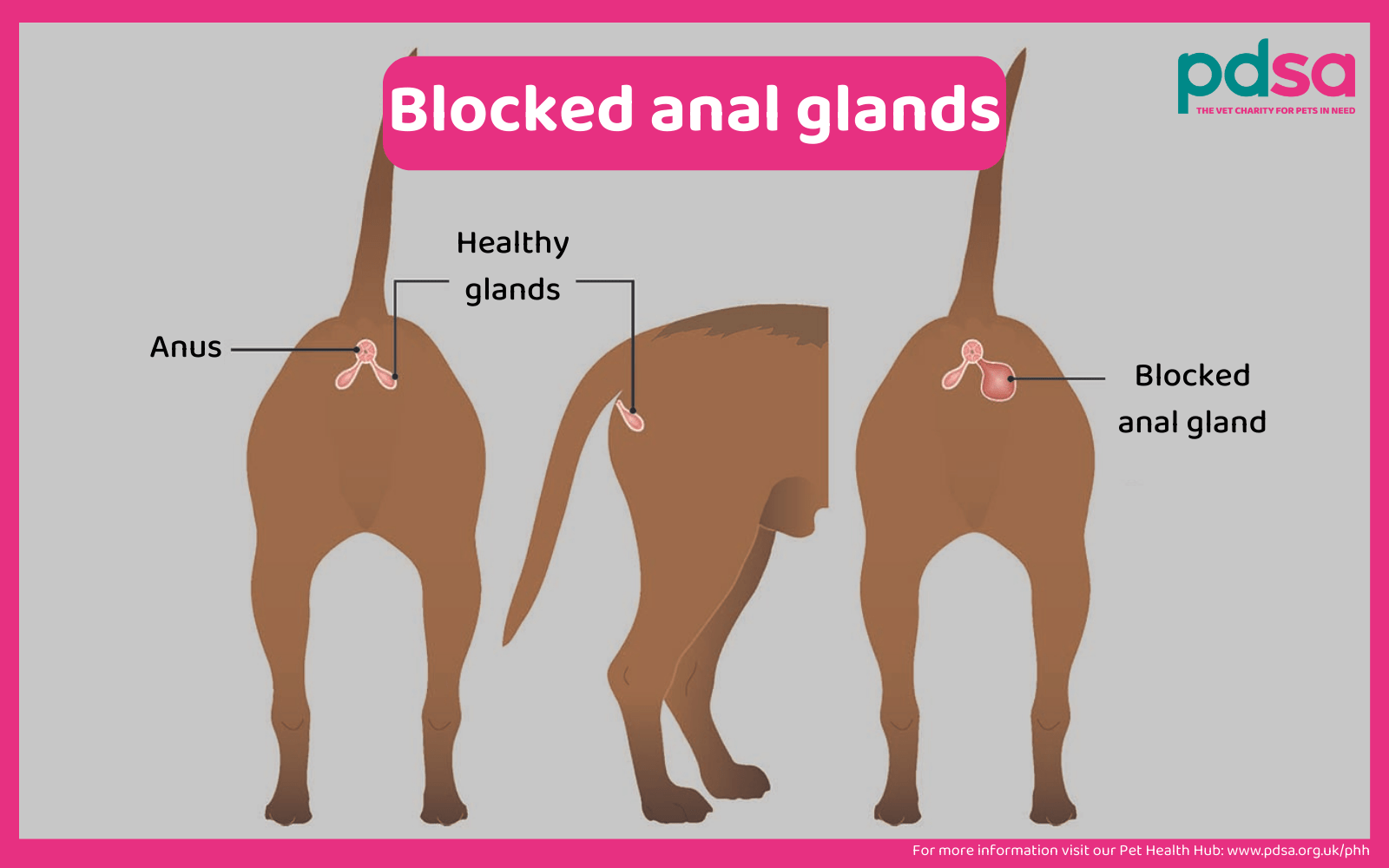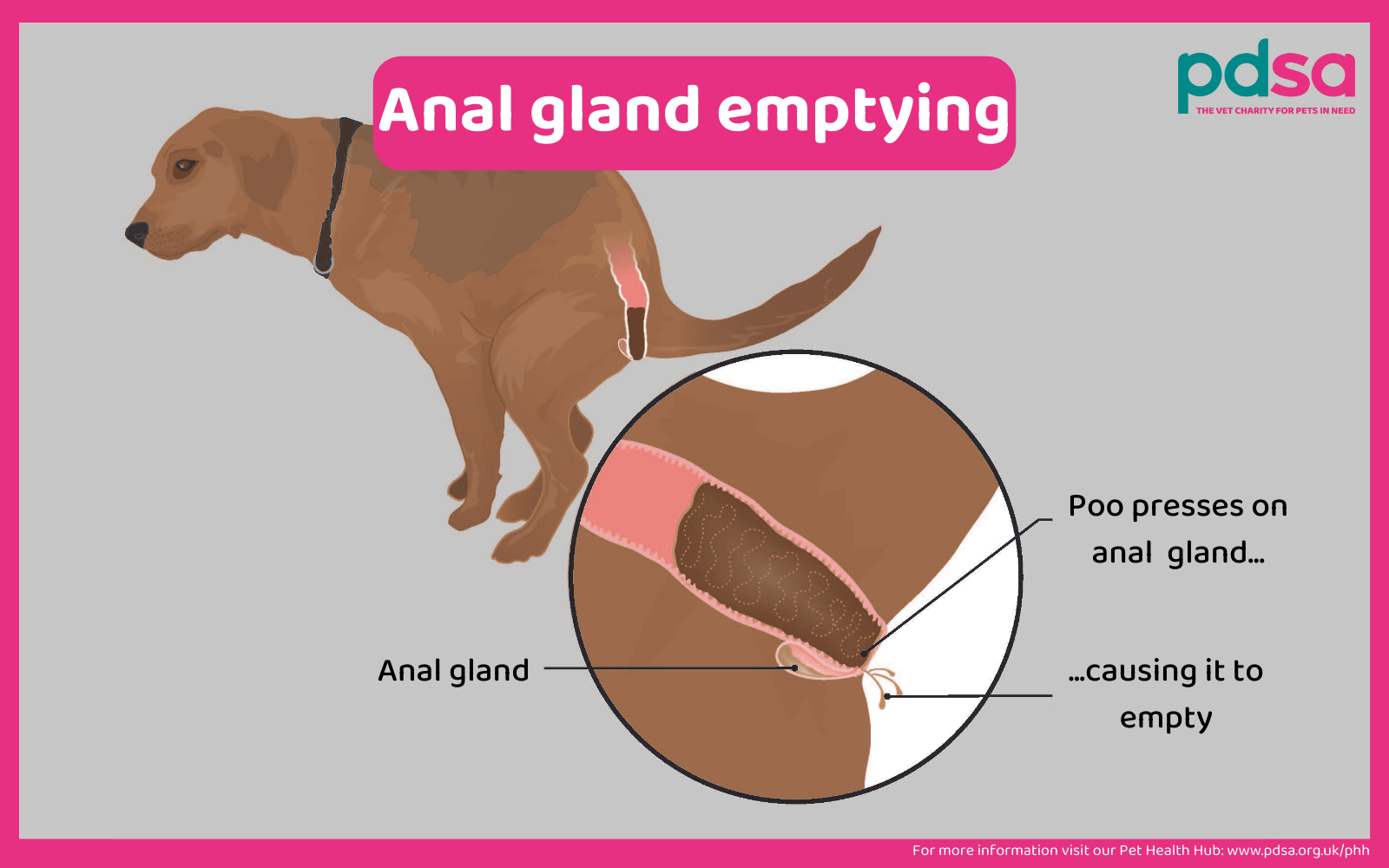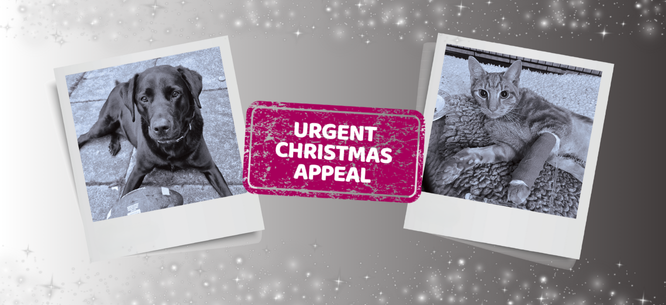Blocked anal glands in dogs
Overview
- What are anal glands? Anal glands are small sacs near a dog's anus that produce a strong-smelling liquid used for marking territory, they naturally empty when a dog poos.
- Why do anal glands get blocked? Anal glands block when they fail to empty naturally, often due to soft stools, obesity, or narrow gland openings.
- Symptoms of blocked anal glands: Blocked anal glands tend to cause scooting (dragging the back end) and discomfort.
- Treatment: This usually involves a vet expressing the glands. In severe cases, medication or surgery might be needed.
- When to contact a vet: If you suspect your dog has anal gland problems, contact your vet. If left untreated, blockages can lead to infections and abscesses. Never try to treat an anal gland problem yourself.

The anal glands are a pair of small sacs located at the four and eight o’clock position inside a dog's anus (see diagram above). They produce a strong-smelling liquid used to mark territory. Anal glands tend to empty naturally when a dog poos (see diagram below), but if for some reason this doesn’t happen, they can become full and blocked.
Anal gland blockages are usually a one-off problem but can be ongoing in dogs with narrow gland openings, chronic diarrhoea, allergic skin disease, and also in dogs that are overweight.

Symptoms of blocked anal glands
Symptoms of blocked anal glands in dogs include:
- Scooting (dragging bottom along the ground)
- Nibbling and licking the anus and/or lower back
- Pain when pooing or when their back end is touched
- Straining to poo
- Sitting down or looking around at their back end very suddenly (due to discomfort)
Diagnosis and Treatment
Blocked anal glands are usually easy to treat. Your vet will examine your dog's bottom and carefully express their glands – which often solves the problem.
- If your dog’s glands are particularly painful or infected they might need additional treatment such as pain relief and/or antibiotics.
- If your dog’s anal glands can’t be emptied manually, your vet may suggest flushing them under sedation or general anaesthesia.
- If your dog has frequent blockages, your vet may recommend regular checks and emptying. Anal gland removal is an option for dogs with long-lasting issues, but the surgery is complex and has certain risks such as faecal (poo) incontinence – speak to your vet for more information.
Never attempt to empty your dog’s anal glands yourself unless you have had instruction from your vet, and are confident doing so. Squeezing them incorrectly can cause serious problems.
 Video found at youtu.be/JzA8VzAET18
Video found at youtu.be/JzA8VzAET18
Outlook and Prevention
Successful anal gland emptying is likely to provide immediate relief and resolve the issue. However, if your dog has recurring problems, there are certain things you can do to reduce the chance of their anal glands blocking again:
- Keep them at a healthy weight: Overweight dogs are more prone to anal gland problems due to weak muscles in the anal area.
- Increase fibre intake: Loose stools often don’t press on anal glands hard enough to empty them. Changing your dog to a high fibre diet can help firm up their stools and allow them to empty their glands more easily. There are specific fibre supplements available for pets, or you can add sugar-free bran flakes or bran powder to their diet. Consult your vet for specific recommendations.
When to contact your vet
Always contact your vet for an appointment if your dog is showing symptoms of an anal gland problem, leaving them untreated can easily lead to infections and abscesses.
Find out whether you are eligible for free or low cost PDSA veterinary treatment by using our checker below.
Cost
Treatment for ongoing anal gland problems can become expensive, so it’s important to speak openly with your vet about the cost of treatment and your finances.
When you welcome a new dog into your life, consider getting dog insurance straight away before any signs of illness start. This will give you peace of mind that you have some financial support if they ever get sick.
- Should I have my dogs anal glands emptied routinely?
- Should I have my dog’s anal glands emptied at the groomers?
- How do I empty my dog’s anal glands at home?
Should I have my dogs anal glands emptied routinely?
No, not unless there is a problem. If your dog has never shown signs of an anal gland problem there is no need to have them examined or emptied.
Should I have my dog’s anal glands emptied at the groomers?
Not unless your vet has advised you to. It’s common for anal gland services to be offered at grooming parlours but this is unnecessary unless there is a problem, and could even cause problems if done in the wrong way or too frequently.
How do I empty my dog’s anal glands at home?
If you want to learn how to empty your dog’s anal glands yourself, ask your vet to show you how. If anal glands are squeezed in the wrong way, they can burst, so it’s important to learn how to do it properly.
Published: July 2024
Did you find this page useful?
Tell us more
Please note, our vets and nurses are unable to respond to questions via this form. If you are concerned about your pet’s health, please contact your vet directly.
Thank you for your feedback
Want to hear more about PDSA and get pet care tips from our vet experts?
Sign up to our e-newsletter
Written by vets and vet nurses. This advice is for UK pets only. Illustrations by Samantha Elmhurst.

